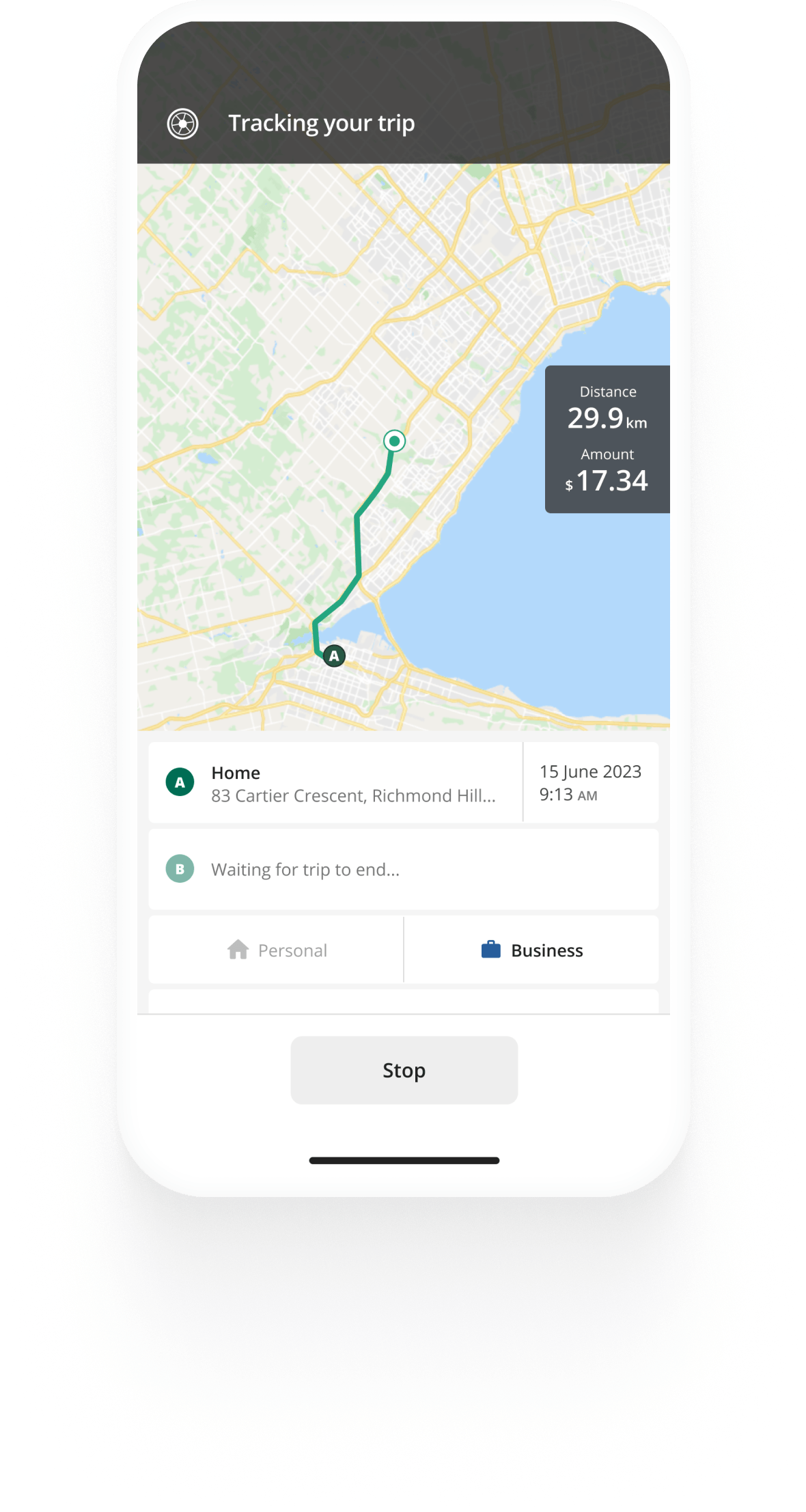Track mileage automatically
Get started
How to Claim Parking on Taxes
Whether you’re an employee or self-employed, you can claim parking on taxes. Read on to learn the specific requirements for claiming parking expenses on your taxes, how to claim, and whether parking can be claimed as a medical expense.
Who can deduct parking tickets
In this section, you can determine if parking expenses are tax deductible based on your employment type and which type of parking expenses you can claim.
Salaried employees
Parking expenses you can claim
You can deduct parking costs that relate to your job if you meet all of the following criteria:
- You’re required to work in a different location from your regular workplace. For example, you may have to travel between different sites.
- Based on your work contract, you have to pay out-of-pocket for your auto expenses.
- Your employer does not reimburse you for vehicle expenses through a non-taxable allowance, such as a reasonable per-kilometre rate. Our article on flat-rate car allowance can provide more information on that matter.
- Your employer has filled out Form T2200, Declaration of Conditions of Employment.
Parking expenses you CANNOT claim
You cannot claim the following parking costs since they are considered personal expenses:
- Parking costs at your company’s office (such as daily or monthly parking fees)
- Parking fines (such as an expired session, or parking without a permit)
- Traffic tickets (such as speeding tickets)
In these situations, parking expenses are NOT tax deductible.
Commission employees
Parking expenses you can claim
You can claim parking expenses associated with earning commissions at your job.
Parking expenses you cannot claim
You cannot claim the following parking costs since they are considered personal expenses:
- Parking cost at your company’s office (such as daily or monthly parking fees)
- Parking fines (such as an expired session, or parking without a permit)
- Traffic tickets (such as speeding tickets)
In these situations, parking expenses are NOT tax deductible.
Self-employed
Parking expenses you can claim
As a self-employed person, you can claim the full amount of your parking costs related to you earning money for your business. For instance, when you need to pay for parking when you drive to a client’s office or when you attend a business conference. Keeping a detailed driving log to support your claims is also good practice, and a mileage tracking app can help automate the process.
Parking expenses you cannot claim
If your client meeting runs late and you get a parking ticket, you cannot deduct that or any other fines.
If you want to find out more about claiming vehicle expenses as a self-employed, take a look at our guide.


Track business driving with ease
Trusted by millions of drivers
Automate your logbook Automate your logbook

Automatic mileage tracking and CRA-compliant reporting.
Get started for free Get started for freeHow to claim parking tickets on your tax return
Here’s how you can claim parking expenses when you file your taxes.
Salaried and commission employees
Step 1
Enter parking costs to the parking line in Form T777, Statement of Employment Expenses. Don’t include the parking costs under the allowable motor vehicle expenses. Also, keep a record of your parking receipts.
Step 2
Take the amount in the total expenses line on Form T777 and enter it on line 22900 (other employment expenses) of your tax return.
Step 3
Keep a record of Form T2200, Declaration of Conditions of Employment, which your employer must complete.
Self-employed
Step 1
You will need to fill out Form T2125 Statement of Business or Professional Activities.
Go to Chart A - Motor Vehicle Expenses and enter the parking amount on line 14 - business parking fees.
Step 2
Keep your parking receipts on file in case the CRA asks for them.
Claim parking as a medical expense
If you need to seek medical care and have incurred travel expenses (vehicle expenses, parking fees, and taking a taxi or public transportation), you may be eligible to deduct your parking costs as medical expenses.
| Distance travelled | Eligible to claim on taxes? |
|---|---|
| Less than 40km | No |
| 40km to 80km | Yes, medical travel expenses. (e.g. transportation and parking) |
| More than 80km | Yes, medical travel expenses plus: mileage, meals, and accommodations. |
To be eligible to claim medical travel expenses on your taxes, you must have travelled a minimum of 40 kilometres one way to seek medical services. If you drove to a local hospital that was less than 40 kilometres away, you cannot claim hospital parking on your taxes.
Keep a detailed record of the date, time, and distance you drove to seek medical care. This will come in handy if you’re asked to provide proof of your medical claims.
We’ve written a detailed guide on claiming medical expenses in Canada where you can find additional information, such as medical travel rates for specific territories.
FAQ

Tired of logging mileage by hand?
Effortless. CRA-compliant. Liberating.
Top posts
- CRA Mileage Rate 2026
- Mileage Calculator Canada
- Self-Employed Tax Deductions you Should Claim in Canada
Related posts
CRA Mileage Rate 2024
Latest update: February 20, 2024 - 2 min read
The CRA announces 2024 rates for vehicle allowance: From January 1st, 2024, per kilometre rates will increase 2 cents over 2023.
CRA Mileage Rate 2026
Latest update: December 18, 2025 - 2 min read
The 2026 CRA mileage rate has not been released yet. The CRA typically announces the rates for the following year in mid-to-late December.
Mileage Calculator Canada
Latest update: October 27, 2025 - 2 min read
Choose a CRA per-kilometre rate or enter your own. Simply enter how many km you drove to calculate your allowance or deduction.


